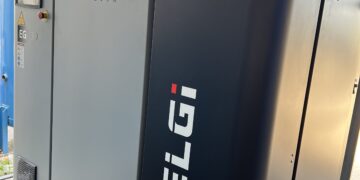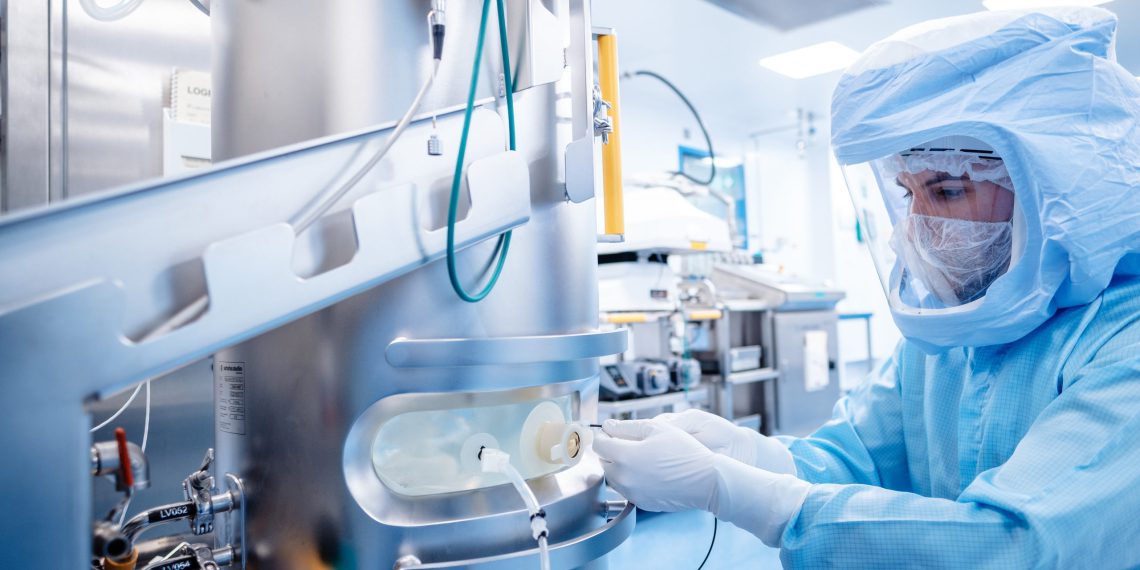The development is one of the world’s first to use defect prediction AI for die casting. It improves quality and productivity by utilizing the AI application in Industrial Edge, the Siemens edge computing platform for industry. The initiative is an innovative example of digital transformation in manufacturing, and Toyota Industries Corporation aims to use it to further evolve their technology and incorporate it into their production plants in Japan and overseas. Siemens hopes that more businesses in the manufacturing industry will adopt their digitalization and automation solutions such as Industrial Edge.
The die casting process is challenging to manage due to a range of constantly changing production conditions such as variations in the molten aluminum temperature or the injection rate. Success relies on the judgement of experienced workers, and sometimes the parts require secondary processing to handle abnormalities and maintain high quality standards.
During development, the two companies used a Siemens Simatic S7-1500 controller to gather big data totaling approximately 40,000 data points per die casting shot at the model line and then analyzed the data using AI technology. They succeeded in preventing defects and improving quality by monitoring the production status in real time and automatically predicting equipment abnormalities that lead to quality issues. The production data is processed by the defect prediction AI on Industrial Edge, enabling instant analysis of the data on production conditions at the time of a shot and assessment of the part quality immediately after the casting. This series of AI technologies boosts productivity, improves quality, and transforms how operators work
Aluminum die casting is a high-speed molding process in which molten aluminum is shot into a die at high pressure. It is ideal for the accurate manufacture of metal cast parts that demand high dimensional precision, and therefore is often used for automotive parts that require high quality and reliability. The aluminum die cast parts made at the Toyota Industries Corporation production plant in Obu, Japan, have excellent airtightness and high pressure resistance. They are essential for the highquality Toyota Industries Corporation compressors used in automotive air conditioning, a field in which they proudly hold the largest share of the global market*.
Siemens aimed to contribute to operational improvements with Siemens Industrial Edge, while Toyota Industries Corporation aimed to increase quality and productivity. The alignment of these goals with the die casting process led to this development, during which they demonstrated proof of concept across two years and achieved a successful outcome. Based on this result, they will continue pursuing technological advancements in order to provide better products for their customers throughout the world.
“Digital transformation is a game changer. I am delighted to have the opportunity to partner with Toyota Industries Corporation in this revolutionary endeavor and to work together to forge the future. We will continue to develop and provide solutions for industries incorporating the latest technologies and to contribute to optimized and sustainable manufacturing.”
— Rainer Brehm, CEO of Factory Automation, Siemens AG
“It is significant that Toyota Industries Corporation has successfully implemented AI technology and achieved outcomes in the die casting process, which is where important compressor parts are produced. I am also proud that we have contributed to the practical use of Industrial Edge, the Siemens edge computing platform for industry,” says Yuji Ishizaki, Senior Executive Officer, Member of the Board and General Manager of Compressor Division, Toyota Industries Corporation. “We will continue to offer new value for customers and to pursue even better working methods by embracing the use of advanced digital technologies in the production field.”
The development is one of the world’s first to use defect prediction AI for die casting. It improves quality and productivity by utilizing the AI application in Industrial Edge, the Siemens edge computing platform for industry. The initiative is an innovative example of digital transformation in manufacturing, and Toyota Industries Corporation aims to use it to further evolve their technology and incorporate it into their production plants in Japan and overseas. Siemens hopes that more businesses in the manufacturing industry will adopt their digitalization and automation solutions such as Industrial Edge.
The die casting process is challenging to manage due to a range of constantly changing production conditions such as variations in the molten aluminum temperature or the injection rate. Success relies on the judgement of experienced workers, and sometimes the parts require secondary processing to handle abnormalities and maintain high quality standards.
During development, the two companies used a Siemens Simatic S7-1500 controller to gather big data totaling approximately 40,000 data points per die casting shot at the model line and then analyzed the data using AI technology. They succeeded in preventing defects and improving quality by monitoring the production status in real time and automatically predicting equipment abnormalities that lead to quality issues. The production data is processed by the defect prediction AI on Industrial Edge, enabling instant analysis of the data on production conditions at the time of a shot and assessment of the part quality immediately after the casting. This series of AI technologies boosts productivity, improves quality, and transforms how operators work
Aluminum die casting is a high-speed molding process in which molten aluminum is shot into a die at high pressure. It is ideal for the accurate manufacture of metal cast parts that demand high dimensional precision, and therefore is often used for automotive parts that require high quality and reliability. The aluminum die cast parts made at the Toyota Industries Corporation production plant in Obu, Japan, have excellent airtightness and high pressure resistance. They are essential for the highquality Toyota Industries Corporation compressors used in automotive air conditioning, a field in which they proudly hold the largest share of the global market*.
Siemens aimed to contribute to operational improvements with Siemens Industrial Edge, while Toyota Industries Corporation aimed to increase quality and productivity. The alignment of these goals with the die casting process led to this development, during which they demonstrated proof of concept across two years and achieved a successful outcome. Based on this result, they will continue pursuing technological advancements in order to provide better products for their customers throughout the world.
“Digital transformation is a game changer. I am delighted to have the opportunity to partner with Toyota Industries Corporation in this revolutionary endeavor and to work together to forge the future. We will continue to develop and provide solutions for industries incorporating the latest technologies and to contribute to optimized and sustainable manufacturing.”
— Rainer Brehm, CEO of Factory Automation, Siemens AG
“It is significant that Toyota Industries Corporation has successfully implemented AI technology and achieved outcomes in the die casting process, which is where important compressor parts are produced. I am also proud that we have contributed to the practical use of Industrial Edge, the Siemens edge computing platform for industry,” says Yuji Ishizaki, Senior Executive Officer, Member of the Board and General Manager of Compressor Division, Toyota Industries Corporation. “We will continue to offer new value for customers and to pursue even better working methods by embracing the use of advanced digital technologies in the production field.”

















